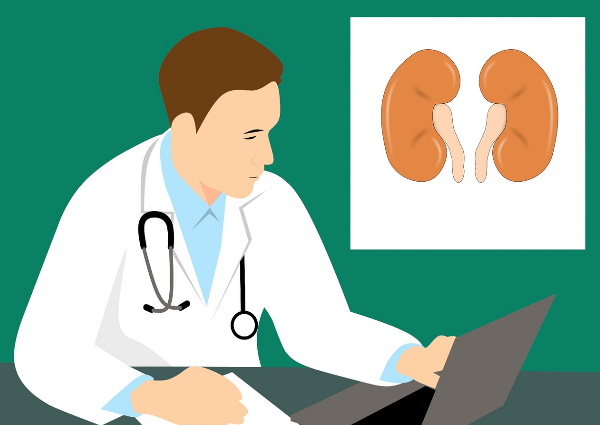Exploring Bartter Syndrome: Genetics, Symptoms, and Management Insights
Bartter Syndrome is a rare genetic disorder that affects the kidneys’ ability to maintain electrolyte balance. In this comprehensive guide, we will delve into the genetics, symptoms, diagnosis, and management strategies of Bartter Syndrome, shedding light on its intricate nature.

What is Bartter Syndrome?
Bartter Syndrome is a genetic disorder characterized by defects in the reabsorption of electrolytes in the kidneys. This leads to imbalances in key ions such as sodium, potassium, and chloride. The syndrome is categorized into several subtypes, each with distinct genetic mutations and clinical presentations.
Common Symptoms of Bartter Syndrome
Bartter Syndrome manifests with a range of symptoms, primarily due to electrolyte imbalances. Common signs include excessive urination (polyuria), increased thirst (polydipsia), muscle weakness, and fatigue. Depending on the severity of the syndrome, affected individuals may also experience growth delays and developmental issues.
Causes and Genetics of Bartter Syndrome
Bartter Syndrome is caused by mutations in genes responsible for ion transport in the kidneys. These mutations disrupt the reabsorption of ions, leading to electrolyte imbalances and fluid loss. The genetic basis varies among subtypes, and understanding the underlying causes is crucial for accurate diagnosis and management.
Diagnosis and Differential Diagnosis
Diagnosing Bartter Syndrome involves a combination of clinical evaluation, laboratory tests, and genetic analysis. Medical history, physical examination, and blood tests help assess electrolyte levels and kidney function. Differential diagnosis is essential to distinguish Bartter Syndrome from other conditions with similar symptoms.
Management and Treatment Strategies
Effective management aims to restore electrolyte balance and minimize symptoms. Treatment may include potassium and magnesium supplementation, as well as medications to regulate electrolyte levels. Lifestyle adjustments, such as maintaining a balanced diet and staying hydrated, play a pivotal role in managing the condition.
Support and Coping
Living with Bartter Syndrome requires resilience and support. Patient communities, online resources, and healthcare professionals offer valuable assistance. Coping mechanisms, such as adhering to treatment plans and seeking emotional support, contribute to improving the overall quality of life.
Research and Future Perspectives
Ongoing research aims to uncover deeper insights into Bartter Syndrome’s genetic basis and underlying mechanisms. Advancements in genetics and medical technology hold the promise of improved diagnostics and targeted therapies. Staying informed about research developments empowers individuals and healthcare providers alike.
Genetic Counseling and Family Planning
Genetic counseling offers invaluable guidance to families affected by Bartter Syndrome. Experts provide information about inheritance patterns, recurrence risks, and family planning options. This personalized approach helps individuals make informed decisions regarding their future.
Raising Awareness and Support
Raising awareness about Bartter Syndrome is essential for early diagnosis and support. Advocacy efforts aim to enhance understanding, foster research, and provide resources to affected individuals and their families. By joining hands, we can create a supportive community and drive positive change.
Frequently Asked Questions (FAQs) About Bartter Syndrome
Q: What is Bartter Syndrome, and how does it affect the body?
A: Bartter Syndrome is a rare genetic disorder that disrupts kidney function, leading to electrolyte imbalances and fluid loss.
Q: What are the common symptoms of Bartter Syndrome?
A: Symptoms include excessive urination, thirst, muscle weakness, fatigue, and growth delays.
Q: Is Bartter Syndrome hereditary?
A: Yes, Bartter Syndrome is inherited through genetic mutations that impact kidney function.
Q: How is Bartter Syndrome diagnosed?
A: Diagnosis involves medical history, physical exams, blood tests, and genetic analysis.
Q: Can Bartter Syndrome be mistaken for other conditions?
A: Yes, Bartter Syndrome’s symptoms can overlap with other kidney disorders, requiring thorough differential diagnosis.
Q: What treatment options are available for Bartter Syndrome?
A: Treatment includes electrolyte supplementation, medications, and dietary adjustments to restore balance.
Q: Can Bartter Syndrome be managed with lifestyle changes?
A: Yes, maintaining a balanced diet, staying hydrated, and adhering to treatment plans are important for management.
Q: Is genetic counseling recommended for families with Bartter Syndrome cases?
A: Yes, genetic counseling provides insight into inheritance patterns and family planning options.
Q: How can I raise awareness about Bartter Syndrome?
A: Sharing information, participating in advocacy efforts, and joining patient communities help raise awareness.
Q: What are the future prospects for Bartter Syndrome research?
A: Ongoing research aims to advance diagnostics, uncover mechanisms, and develop targeted therapies.
Conclusion
Bartter Syndrome’s intricate nature requires a multidimensional approach. Understanding its genetics, recognizing symptoms, and implementing effective management strategies are crucial. By fostering a supportive environment and staying informed, individuals with Bartter Syndrome can navigate their journey with confidence and empowerment.




